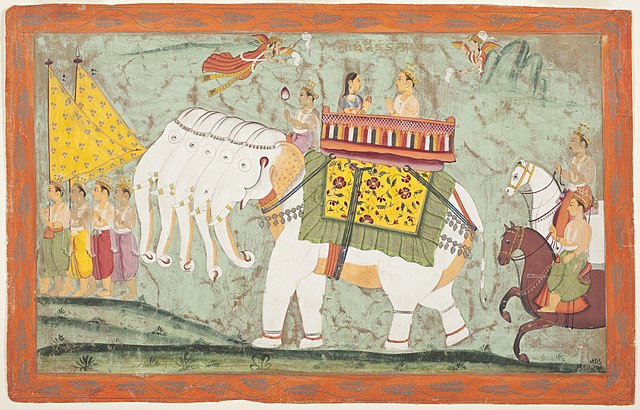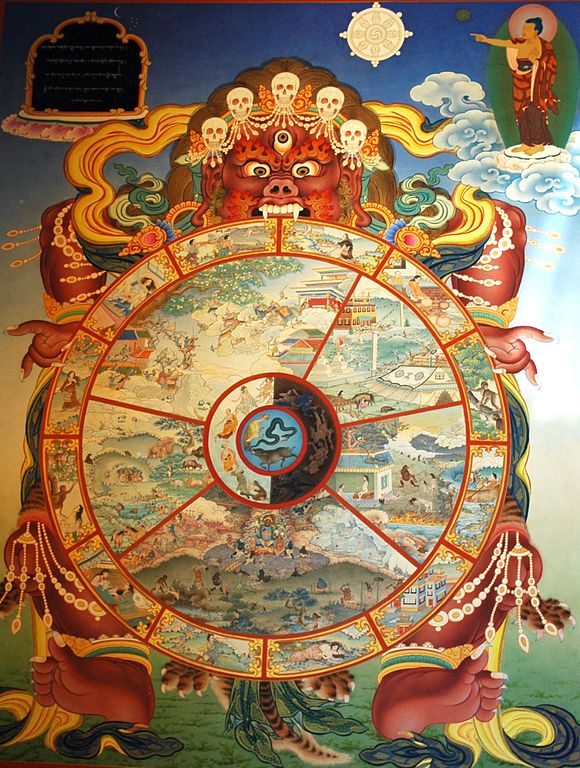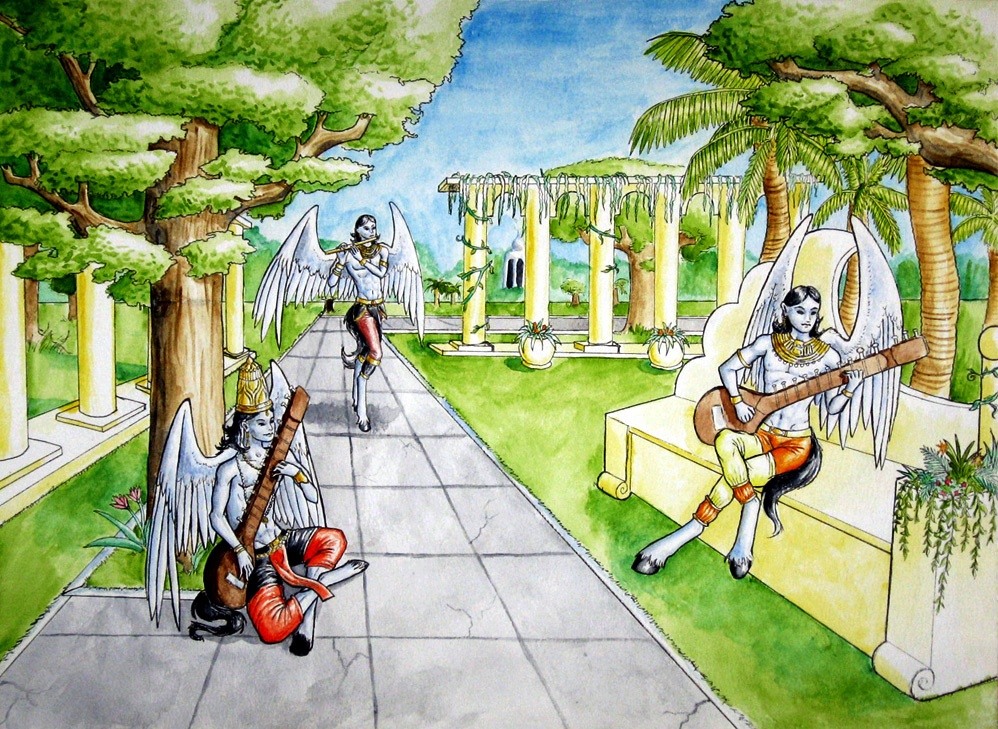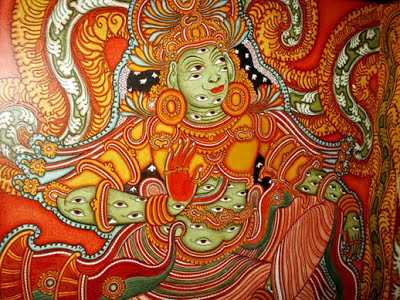There are, of course, some dissimilarities between devas and angels. For one thing, angels are not born and seem to be everlasting. Devas are born (or reborn) (Rg Veda i.143.2 and x.129.6) and do not remain in their heavens eternally. Although their life-spans are very long, eventually they exhaust their karma and are reborn in a different realm.
There are, however, some interesting similarities between them. Both devas and angels are purely spiritual (i.e., immaterial) beings. Devas seem to lack perfect knowledge or wisdom and generally do not interact with devas occupying plans of existence higher than their own.
They can also lack spiritual wisdom. For example, according to Kaushitaki Upanishad (Book 4), Indra was weaker than his adversaries, Asuras, before he come to know his own Atman (soul), suggesting a kind of spiritual awakening.

Indra and Sachi Riding the Divine Elephant Airavata, from a Panchakalyanaka (Five Auspicious Events in the Life of Jina Rishabhanatha ([Adinatha]), India
Perhaps most interestingly, both angels and devas display moral flaws. Some angels are excessively proud or jealous of humans. This leads to their rebellion against God and eventual fall. Similarly, many devas are too preoccupied with pleasures, failing to give proper respect to Buddha and his fully awakened disciples, who represent the perfect wisdom. Thus, they show a similar lack of humility.
Do angels and humans have more in common than we know? Could we, in fact, have been angels or devas in another life? The fact is, most of us do not remember our previous lives—should these exist. I surely do not. Maybe there is nothing to remember.
Maybe I have never been an angel and I have never fallen. Maybe I have always been just a bear, or a wolf, or a ghost, or a hungry spirit, or a human, or something. Maybe I am all of these at each and every moment. Maybe this is my one and only life. I don’t know. This is perhaps why I myself lean towards a metaphorical interpretation of the Six Realms.
When my mother took me on a tour of Auschwitz, where she had been imprisoned, it was obvious to me that she had endured and survived hell. What we do to animals, especially on factory farms, looks to me like condemning them to hell, too. When I observe politicians clinging to power, they apparently act like asuras. When I do something on the first instinct and only later think about it, I seem to be acting like an animal. And when I give in to my insatiate appetites, it seems like I am a hungry ghost (preta).
Thus, perhaps, I do simultaneously occupy all planes of existence implied by the Wheel of Life and Death. I am both a human and an animal, both a hungry ghost and a heavenly dweller, both a deva preoccupied by pleasure and an asura driven by anger and hate. The ultimate meaning of the myth may be that various dispositions and aspirations coexist in each and every one of us.
A great haiku master Kobayashi Issa (1763-1827), a devout Buddhist in Jōdo Shinshū or Amidist tradition, offers a poetic rendition of the myth of the Wheel of Life and Death.

Traditional bhavachakra wall mural of Yama holding the wheel of life, Buddha pointing the way out, photo by Ms Sarah Welch, Seattle, Washington
His six-part poem (translated here by Robert Haas) is entitled “The Six Ways”:
bright autumn moon –
pond snails crying
in the saucepan
flowers scattering –
the water we thirst for
far off, in the mist
in the falling of petals–
they see no Buddha
no *Law
in the shadow of blossoms,
voice against voice,
the gamblers
Men
we humans —
squirming around
among the blossoming flowers
The Heaven Dwellers
a hazy day —
even the gods
must feel listless












One comment
“So long as Indra did not understand that [most inner] self, the Asuras conquered him. When he understood it, he conquered the Asuras and obtained the pre-eminence among all gods, sovereignty, supremacy. And thus also he who knows this obtains pre-eminence among all beings, sovereignty, supremacy, – yea, he who knows this” ( Kaushitaki Upanishad, Book 4: 20).
Our apologies, you must be logged in to post a comment.